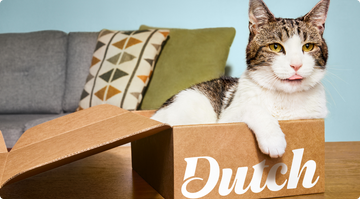Diuretics for Cats
Diuretics for cats help alleviate discomfort and maintain your feline companion's well-being. Compare diuretics for cats to find the best option for your feline friend and budget.
-

Furosemide Tablets (Rx)
$6.49 / unit
Multiple options available
-

Salix Tablets (Rx)
$7.89 / unit
Multiple options available
-
Prescriptions without the expensive vet trip
Video chat with a vet and get new prescriptions and renewals — shipped free to you.

-

Spironolactone Tablets (Rx)
$11.69 / unit
Multiple options available
Frequently asked questions
What are diuretics for cats?
What are diuretics for cats?
Cat diuretics are medications designed to increase urine production, eliminating excess fluid from the body. These medications are commonly used to treat conditions like congestive heart failure, hypertension, and kidney disorders in cats.
Some common diuretic medications vets prescribe for cats include:
While diuretics can be beneficial in managing various health conditions in cats, they can also cause side effects. Some potential diuretics for cats' side effects include:
- Dehydration: Increased urine production can lead to dehydration if your cat doesn't consume enough water to compensate for fluid loss.
- Electrolyte imbalance: Diuretics can disrupt the balance of electrolytes, which can cause weakness, muscle cramps, or irregular heartbeat.
- Gastrointestinal upset: Cats may experience GI side effects like nausea, vomiting, diarrhea, or loss of appetite when taking these medications.
Is furosemide a diuretic?
Is furosemide a diuretic?
Yes, furosemide is a diuretic for cats. It's classified as a loop diuretic and is typically prescribed to increase urine production and eliminate excess fluid from the body in cats and other animals. Furosemide is available as tablets or Furosemide Oral Solution (Rx).
Is Lasix a diuretic?
Is Lasix a diuretic?
Lasix is one of the brand names for furosemide, so it is a diuretic for cats. Furosemide is also sold under the brand name Salix, which you can get as Salix Tablets (Rx) and can be used to treat conditions such as congestive heart failure, hypertension, and some kidney disorders in cats.
You can find these diuretics and more at our online pet pharmacy.
How long does it take for furosemide to work?
How long does it take for furosemide to work?
Furosemide typically starts working within about one hour after administration. However, for optimal results, it may take up to one week of regular use. This medication's effectiveness can vary depending on factors such as the individual cat's health condition, dosage, and overall response to treatment.
Follow your veterinarian's instructions regarding dosage and administration schedule to ensure the best outcomes for your cat. Additionally, closely monitoring your cat's response to furosemide and reporting any concerns or changes to your veterinarian is crucial for properly managing their condition.
What is the best diuretic for cats?
What is the best diuretic for cats?
The diuretic your vet prescribes will likely depend on your cat's health condition and the severity of the fluid retention. Over-the-counter diuretics for cats, while available, may not always provide the necessary strength or efficacy required for certain medical conditions. Natural diuretics for cats, such as herbal supplements, may offer gentler alternatives, but their effectiveness can vary, and they may not be suitable for all situations.
Prescription diuretics for cats, like furosemide, are often preferred for their potency. These medications are prescribed by veterinarians based on individual cat needs and are formulated to provide reliable results in managing fluid retention associated with various underlying health conditions.
The best diuretic for a cat should be determined through consultation with a veterinarian, who can assess the cat's specific health needs and recommend the most appropriate treatment plan. Looking for accessible pet care? Try Dutch. Dutch members get free shipping on all pharmacy orders, unlimited follow-ups, and access to convenient pet care.





